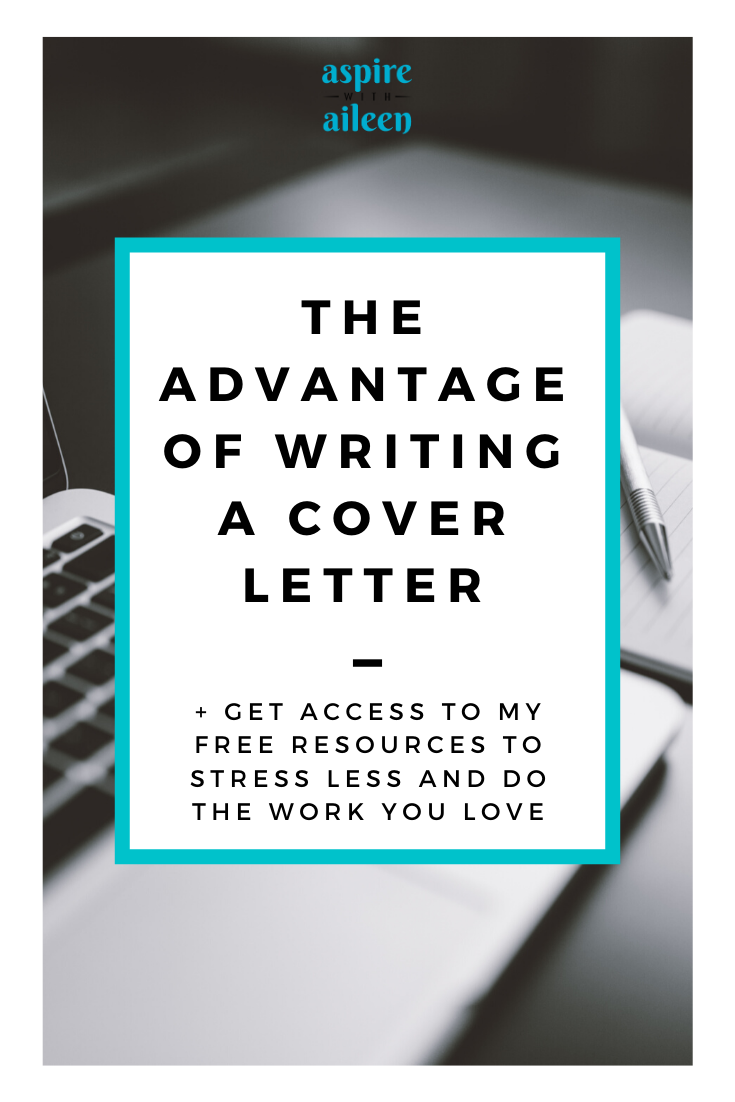One of the biggest sources of frustration when writing a cover letter is trying to decide what information is most relevant to include for employers. Many people wonder if they're allowed to repeat information that's on their resume, and others wonder how much detail to go into overall.
This video will walk you through an exercise that will help you determine what employers want to read in cover letters, and how to assess which parts of your background are most important to include.
The even better news? The activity I recommend in this video is also an incredible way to prep for interviews, too!
Today we're going to be talking all about the differences between what material goes on your resume versus your cover letter. I think this is one of the areas where people get most frustrated or confused when they start trying to write a cover letter. Often times it's because they have no idea what the point of it is, what information makes sense to repeat, and what can just be left on the resume. So that's what we're going to focus on today!
When you're going to write a cover letter, I recommend you go back to the job description and do a little activity to ensure all of your materials are as tailored and applicable to that job as possible. This exercise is something you can do in editing your resume as well. I recommend printing out the job description, or copying, pasting it, and putting it into a Word doc. The reason I suggest this is because when an employer goes to interview candidates, sometimes they remove the listing. If you don't have a copy for your records, you're going to have to ask for it, which can just add another complicated step to the process.
Most relevant to this exercise is I really want you to sit down and dissect the job description. Don't just look at the qualifications or the skills, which is what many people do, but slowly work your way through the entire document to notice what themes the employer is bringing up. They might be talking about having to work in a fast-paced environment, and the culture being really innovative and new, and that's in the company blurb. Then you move on to the job description where you may see there are similar sentiments shown. It will be beneficial to you to look for the same tasks or qualifications repeated throughout the listing. If it’s repeated throughout the listing, that’s when you know it's a really critical part of what they're looking for in a candidate. Based on that exercise, you can now look at what is most relevant and important to emphasize about yourself in both your resume and your cover letter.
Let's go back to the original question, which is what should stay just on the resume versus the cover letter. When you're doing an exercise of walking through, and really breaking down the job description to notice what themes exist, and how your background and skills align. You will most likely have what I call “aha!” moments. These are moments where an employer is describing a skill set that they have or are a part of a role, and you think, “Oh, that's exactly what I've done in this position, or that's exactly what my job is right now.” In those moments, when you notice there's such a strong connection between what they're looking for and what you have. It's important to make a note that that is exactly what should go into your cover letter. That's really critical information! This section should be the real meat or the biggest part of what you're emphasizing.
Secondly, anything else repeated in the job description and the qualifications correlating to your skillset should tie into your cover letter in a more narrative. When in doubt, your resume should have certain keywords, verbs, or consistent phrasing that is coming up in the job description. Remember, your cover letter is the chance to really go into more detail about an example of a skill you have that maybe only got half of a bullet in terms of the description on your resume. If there's a volunteer experience or something that isn't on your resume, but it's one of those “aha” moments, your cover letter is the perfect chance to go into detail and describe exactly what that is.
I hope this helps give clarification about what makes sense to keep on your resume and what you really need to give more attention to in your cover letter. If you have any other questions, feel free to drop them in the comments section or reach out for a free 30-minute consultation. Thanks for watching and have a great day.
If you found that helpful, keep learning how to craft cover letters that convert through my step-by-step guide!






